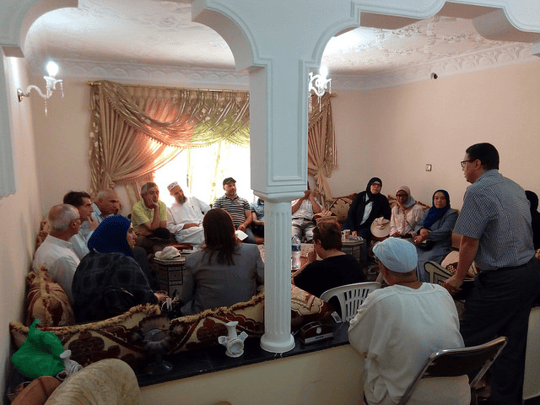Organic Farming in the Oriental Region

The development of organic agriculture in Morocco faces various technical, commercial, financial, and organizational constraints. Organizational constraints—primarily poor coordination between local cooperatives and associations—are of particular importance and must be addressed. The lack of effective relationships between such entities can consequently impede upon the interests of stakeholders invested at various levels in the organic sector.
For example, it was once the case that organic-certified agricultural products in Morocco’s Oriental Region could not be marketed at their fair value, despite significant demand, largely due to a lack of markets or stores to sell in. As a solution to this problem, a unique initiative emerged from the region’s Cooperative of Organic Agriculture. To ensure profitable sales of organic and agroecological products, the cooperative members—acting as both producers (i.e., farmers) and consumers of the products—outlined the following goals:
- Develop, promote, and market organic and agroecological products in the Oriental Region;
- Accompany producers in the region who want to transition to organic farming or learn about agroecology;
- Make consumers aware of the importance and benefits of organic and agroecological production, and label local products; and
- Promote communication between organic and agroecological producers at the local, regional, national, and international levels.
Since the initiative’s creation, the Cooperative of Organic Agriculture has worked towards delivering on their goals. In February 2018, a headquarters location was established in Berkane as an organic store. This location serves as the direct sales point representing producers of the Oriental Region and other regions of the Kingdom. Its mission is to not only make agricultural products (including organic-certified products) available to consumers of the Oriental Region but also to valorize the products and spread awareness of their origins as well as production techniques.
In addition, the initiative created a network of families with designated facilitators in March 2018 to share information about organic agriculture. Each week, the families come together and share their organic seasonal basket as well as share their experiences. The weekly gathering provides them the opportunity to define their common needs and best practices regarding both product preparation and delivery to organic shops and consumers. As the families continue to meet, their numbers increase, with new families joining the network of agroecological producers. They all hold the belief that their organic projects are not just a matter of livelihood but also social urgency.
The High Atlas Foundation, with the Middle East Partnership Initiative, is helping us secure the food certifications we need, and the marketing we seek. I love that they love good ideas, for shared benefit, for the people and our environment.